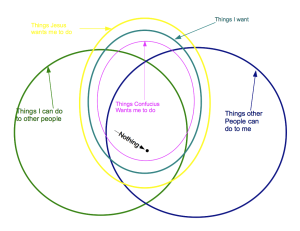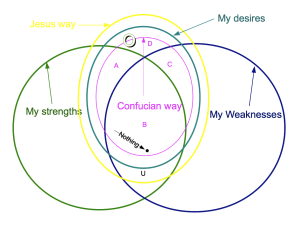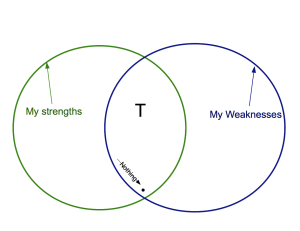I would not be the first one to point out that this is the way things are. Hospital bills are insanely high. The birthing of my child including the subsequent 11 days of hospital NICU (neonatal intensive care unit) stay at the Stanford Lucile Packard Children Hospital resulted in a combined bill for both mom and child of $157k. And let me say upfront the staff at LPCH worked very hard to make our stay comfortable. We learned a lot about taking care of the baby there from all the wonderful nurses and Dr.'s
$175k is a lot of money: With that money I could three(3) base Model S's. Or I could pay off of some of my mortgage. Or pay off my parent's mortgage. At my planned saving rate of about $20k a year, it would take me 8.5 years to accumulate that amount of money, just for a single incident of child-birth(not including continuing costs after the fact). Now, being an informed modern man, I appreciate the 99.99%(estimated) success rate of child-birth that this cost buys me. And indeed my child is healthy and alive, and she may very well not be if we had her in a wilder situation where the cost is less. The peace of mind that we have knowing that there is a machine and two nurses watching over the child during those tenuous times is very much worth it.
Now there are two issues of concern. One of them is that the entire process was not 100% pleasant, there were times when we wondered if the doctors/nurses/staff were picking on us because of our minority status or apparent lack of wealth or influence. Some staff were quite obnoxious, one even dropped his badge in an inconspicuous place in order to lift my wife's cover to search for it. what a pervert!
Anyway, that's not the problem. This $175k bill would have put me in debt for 8.5 years if I did not have an insurance. The insurance company negotiated a different price tier and then paid for about 95% of the negotiated fees to the LPCH. Without insurance company, I may have simply taken the child home after birth and watched her stop breathing and then eventually rush her body to the hospital. Without insurance, my wife would suffer from untreated back injury from the birthing process. Without insurance, I would not be able to take the baby to a dr. about the mucky eyes she has and eating/pooping/peeing issues and various growths and spots and all kinds of weird alien things baby produce. Life would not be life as I know it without the group comprehensive insurance provided by my employer.
Recalling just a mere 6 months prior to this, I was rejected for insurance by a large PPO because I checked a box that said I snored--due to a prior condition. I am a fairly healthy person in my mid 30's and being rejected for health insurance was the last thing I expected... it kind of ended my consulting career.
Let's think of health insurance in more detail. Insurance is a benefit, part of my compensation package, my employee give me for my service to the company. What this means is that I must work for an employee that provides group insurance in order to continue to receive this kind of benefit.
It would seem that the pressure and flow of money is as follows: medical cost is high, insanely high, to a point that it would appear an uninsured person cannot pay for basic care. Each individual is highly incentivized to work for large corporations that provide group health insurance, because if they don't they cannot get health coverage and because the cost of health care is high, they cannot get health care. (oh, and also in the same breath, only spouse of a heterosexual marriage can benefit under group health insurance)
I personally appreciate the role of doctors play in society. They use their life's time and energy to become good at treating people's illnesses so that other people can live long and happy lives. I think the medical-industrial-complex that power advanced research in science and technology that produce advanced diagnostic tools (xray,mri, etc.) and drugs, and genetic therapy, and stem cell research, all these things trying to make people's life better are great! It costs a lot of money and require a lot of resources: universities, hospitals, buildings, power/computing infrastructure, lots of smart people to achieve advancement. So an expensive drug, expensive test, if charged by original developer, is cost to pay for past and future research. Expensive doctor is to pay for his educational cost and to maintain his alertness, dedication to the unbiased professional medical treatment of his patients. I want them to make more money because I don't want to have to wonder if my Jewish doctor treat Jewish children better than my child or if my Russian doctor treat his Russian patients differently from my wife. I want to receive good treatment and I believe that most doctors are paid above other people not only because of their unique skill sets but also because they rise above all that, ethically, and heal their patients any human patients to health.
BUT, that fact is being exploited by large corporations. Only large corporations can afford group health insurance. Therefore only they have access to people who want health care. Fundamentally, there is nothing wrong with this. But practically it forces all health-conscious people to subscribe to corporate culture. We do not have a choice in how we contribute to society, but as long as we want to see a doctor when we need, we must be part of a large organization full-time.
Some additional aspects of this arrangement: If I had a serious prior condition that requires constant treatment, then I must be employed at a large company in order to survive with life. If there are any bias in corporate employment then the same bias would occur in availability of medical treatment. If I stop working or have never had insurance, I must work for a company because I will not be able to get insurance having a break in health coverage. I cannot leave the company for injustice or corruption immediately and in the duration of dispute, I may not be able to continue with insurance, and the interruption in coverage will result in the impossibility of my getting health insurance.
I have always been in favor of universal health care in America. This is not because I come from a faux-social/communist China. I am in favor of universal health care despite the fact that the medical super industry will not receive as much money from patients because the US government will surely negotiate an even better price than the private insurance companies. I am in favor of universal health care--for basic maintenance care--because health, along with wealth, is part of our pursuit of happiness. I do not believe one can be happy secured with his wealth but insecure with his health, and we should have the freedom to choose health independent of wealth. Health is life. Right of life means right of health, protection for right of life means protection for right of health--in fact protection to right of health should be on par with the right to secure one's wealth. Health is happiness. Pursuit of happiness requires health. This is why I think universal health care--to a certain level--is a must. Even if it detracts slightly from advanced medical research.
Okay, moving on. A thought occur to me the other day on the way home from my health-coverage earning job in corporate America. I thought of the transitive action space(TAS) more. The TAS encodes actions between people, therefore should be thought of as only encompassing all endeavors regarding acting morally. Again, I justify this because the original thread of thought came form the golden and silver rules of ethics both of which directs us in how to act.
But clearly they have said more than that, for instance it has been said that one should "love thy neighbor as thy self." Granted this a command in the TAS, but more action this is a feeling. Love is a feeling, is a state of mind that can occur without visible action in the TAS. Perhaps we should also mention the existence of transitive emotional space, TES. Subsets of TES instructs us about the moral ways to feel--whether we have control over feelings, and are they moral if we control the feeling rather than naturally feel, is an entirely different discussion. We can, in fact, specify the subspace of TES that is moral, the Bible sure does.
There are of course yet other instructions in morality that instructs us on how to "be". "Be one with God," "Be one with the universe," "Being a higher being," "Being enlightened"... and so on and so forth. Some argue that the being is creating an internal state, and therefore being moral is the moral motive force that enable us to act and feel morally. Some even stipulate that without a moral motive force a moral space in TAS is not moral. For instance, if I feed my baby with an intent driven by the perverted curiosity of seeing a grossly obese 1yr old, then the action of "feeding a baby" in TAS is entirely moral (possibly universally), but the being inside BS is immoral. Most would agree that the act is entirely immoral.
Therefore we should also seriously consider BS--Being Space that contain all the ways that we could be. The challenge of such a space is that BS is of much higher cardinality than TAS. In the real world, we can very likely specify countable discrete TAS for a certain self contained situation in which we have to make moral choices, where as I am not able to imagine the "enlightened" and "universe" beingness of BS--do they intersect? does one contain the other? What are the sets in TAS that corresponds to their intersections? Does intersection and containment make sense in the BS? How do I choice to be something BS? How do I be something in the BS?
Ultimately, the choice of TAS seem rightous at this stage of my investigation. And I beleive that even if BS is ultimately the only space where morality is true, that there is a TAS projection from BS that can be modeled. From time to time, we may need to point out the relation between a TAS set and BS but until I have the language to discuss it, BS shall remain mysterious and unexplained.


